Cargando...
Recursos educativos
-
Nivel educativo
-
Competencias
-
Tipología
-
Idioma
-
Tipo de medio
-
Tipo de actividad
-
Destinatarios
-
Tipo de audiencia
-
Creador
-
Final self-evaluation 02 - Prehistory
EduBook Organización
- 3906 visitas
Indicate whether each statement is true or false: Cave paintings are the first examples of art in human history. ➝ Cave painting consists of carvings and little sculptures. ➝ All cave paintings show…
-
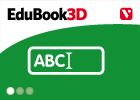
Final self-evaluation 01 - Prehistory
EduBook Organización
- 2917 visitas
Complete the sentences with the correct words: The Palaeolithic period began when the first beings appeared and ended with the discovery of . The people of the Palaeolithic period were predators: they…
-
Final self-evaluation 03 - Animals
EduBook Organización
- 2867 visitas
Decide which of the following animals are cnidarians and which are not: sea urchins ➝ jellyfish ➝ starfish ➝ corals ➝ sea anemones ➝ sponges ➝
-

Final self-evaluation (10) - Migration
EduBook Organización
- 2693 visitas
Are the following sentences true or false? Population pyramids are used to calculate the net migration rate. Refugees are usually undocumented and do not have any official papers. Globalisation has…
-
Final self-evaluation 08 - Animals
EduBook Organización
- 2677 visitas
Say which of the following groups of animals are vertebrates and which are invertebrates: cephalopods ➝ birds ➝ fish ➝ molluscs ➝ arachnids ➝ mammals ➝ gastropods ➝ amphibians ➝ reptiles ➝
-
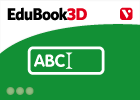
Final self-evaluation (1) - Migration
EduBook Organización
- 2520 visitas
Complete the following text with the missing words: Populations are constantly changing because of factors such as increases or decreases in the and rates, as well as the arrival of foreign . Spain is…
-
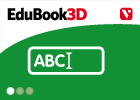
Final self-evaluation 07 - Animals
EduBook Organización
- 2505 visitas
Decide which of the following characteristics belong to vertebrates and which belong to invertebrates: Internal skeleton. ➝ Three pairs of legs. ➝ Spine. ➝ Cranium which protects the brain. ➝…
-

Final self-evaluation 03 - Prehistory
EduBook Organización
- 2302 visitas
Indicate whether the following statements are true of the Cantabrian style of cave painting: They show scenes of daily life. ➝ Animals and their hunters are shown together. ➝ The animals are drawn…
-
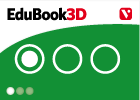
Final self-evaluation 05 - Animals
EduBook Organización
- 2194 visitas
Which group of animals does the following definition refer to? The body is covered by a hard substance which forms a skeleton. This skeleton is external and is divided into articulated parts.
-

Final self-evaluation (4) - Migration
EduBook Organización
- 2138 visitas
Choose the correct answer for each question: What measures have receiving countries adopted to regularise immigration from LEDCs? What are East-West migrations? What type of migration takes place between MEDCs?
Te estamos redirigiendo a la ficha del libro...













